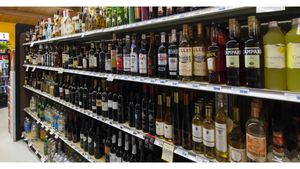SAFETY CHECK
The University of Minnesota's College of Pharmacy has opened a new center devoted to assessing the safety of dietary supplements. Here, researchers will collect, analyze and disseminate information on the safety of the various pills, liquids and powders that make up a $20 billion industry."The problem has been that we haven't had a robust system of surveillance to confirm or acknowledge issues surrounding
May 2, 2005
Robert Vosburgh
The University of Minnesota's College of Pharmacy has opened a new center devoted to assessing the safety of dietary supplements. Here, researchers will collect, analyze and disseminate information on the safety of the various pills, liquids and powders that make up a $20 billion industry.
"The problem has been that we haven't had a robust system of surveillance to confirm or acknowledge issues surrounding supplements," said Dr. Richard Kingston, professor of pharmacy and the new center's director. He said the facility is the first of its kind in an academic setting.
Though the industry has been regulated under parameters set by the Dietary Supplement Health and Education Act of 1994, manufacturers largely have been left to operate on good faith. Indeed, the law only asks supplement makers to report adverse reactions involving the use of their products -- no mandatory reporting requirements exist.
The center, which will be partially funded by supplement makers, plans to act as a clearinghouse for safety-related data, as well as developing a national database of supplement ingredients. Researchers will also be invited to publish reports on product efficacy and safety. In so doing, the center hopes to remove some of the mystique surrounding supplements and -- in this sense -- treat them like regular manufactured drugs.
"Just because there are potential interactions with other medications does not necessarily make supplements bad," Kingston said. "But this is where the information is sorely lacking and what we need to develop."
Manufacturers of these products have promoted their own best practice guidelines to ensure that the dietary supplements they produce are safe and contain the pure, quality ingredients as listed on the label. These aspects quickly become overshadowed, however, according to Loren Israelsen, a consultant and executive director of the Utah Natural Products Alliance.
"Since DSHEA, the industry has been more, and not less, regulated," he said. "The problem is that the egregious claims and products get the headlines."
About the Author
You May Also Like




